Introduction
This design is inspired by some artwork from an artist called Small-Brown-Dog on both DeviantArt and Artstation. He has created an alternative history of WW2 with the use of electrically powered reduced gravity devices (as i understand it) which reduce the requirement for normal lifting devices (wings) which enables some cool designs to be created.
The Kestrel is a twin engine heavy fighter/ ground attack aircraft that was used by multiple airforces during WWII and into the Korean war conflict. This particular airframe is in the guise of a USN aircraft.
It was powered by two SBD Tesla-Royce Kestrel Electric XXX engines produced under licence by Allison engines in the US. These engines provide lift equal to 90% of the airframes loaded weight which enable some really slow landing approaches and the ability to launch from small craft such as the USS Tiny sized support carriers.
Armed with the standard four .303 (7.7 mm) Browning machine guns mounted in the nose and two Vickers Class "S" 40 mm (1.57 in) pod mounted cannon it certainly packed a punch. Again the electric lift from the engines allowed the aircraft to carry a heavier loadout that would have been the case otherwise.
Controls (IMPORTANT)
To takeoff:
AG1 to turn on the combustion engines then AG2 to turn on the electric reduced gravity engines.
To land:
Reduce speed to appropriate level (you can still fly at about 50knts if you are approaching something like USS Tiny, once your wheels are down and prior to applying brake turn off AG2 (if you dont the lift will make the aircraft lift unevenly and brake the props)
(other controls: AG3 to shut/open cockpit, AG4 for arrestor hook, AG7 to jump out)
Pictures




Specifications
General Characteristics
- Created On Windows
- Wingspan 26.7ft (8.1m)
- Length 35.1ft (10.7m)
- Height 15.2ft (4.6m)
- Empty Weight 11,051lbs (5,013kg)
- Loaded Weight 14,461lbs (6,559kg)
Performance
- Power/Weight Ratio 0.932
- Horse Power/Weight Ratio 0.276
- Wing Loading 31.9lbs/ft2 (155.7kg/m2)
- Wing Area 453.6ft2 (42.1m2)
- Drag Points 3820
Parts
- Number of Parts 1289
- Control Surfaces 0
- Performance Cost 4,156

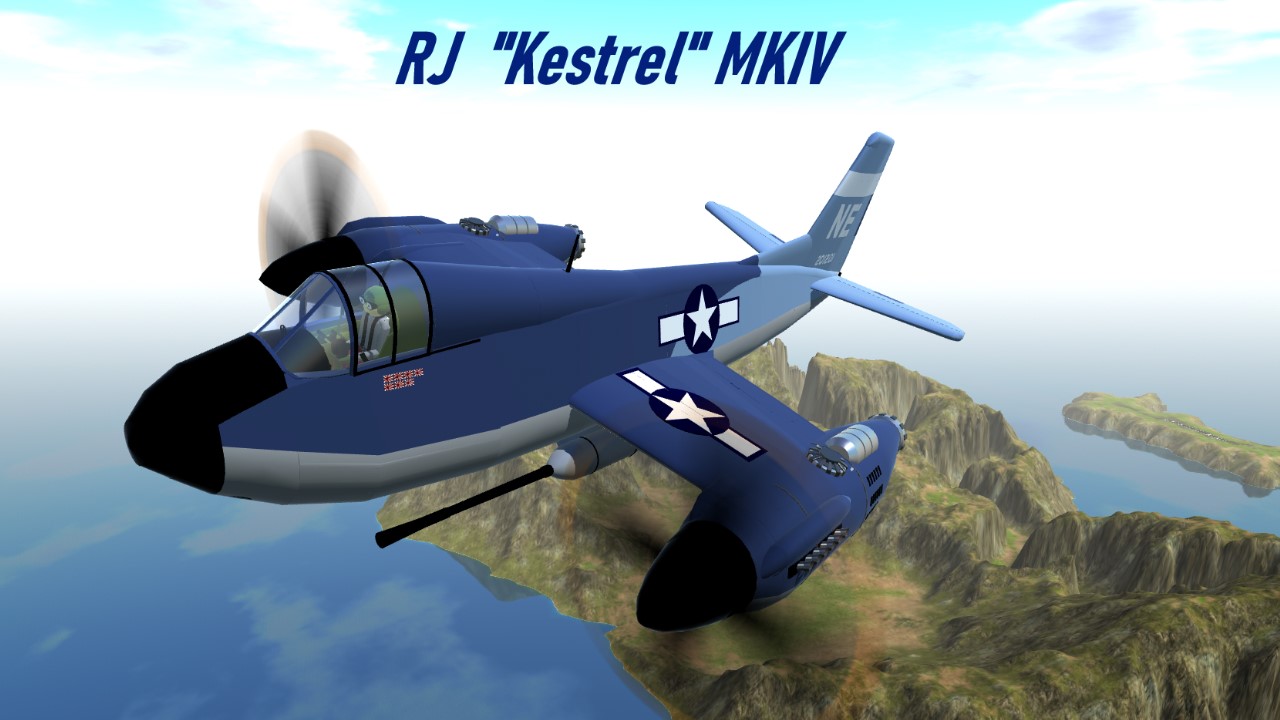
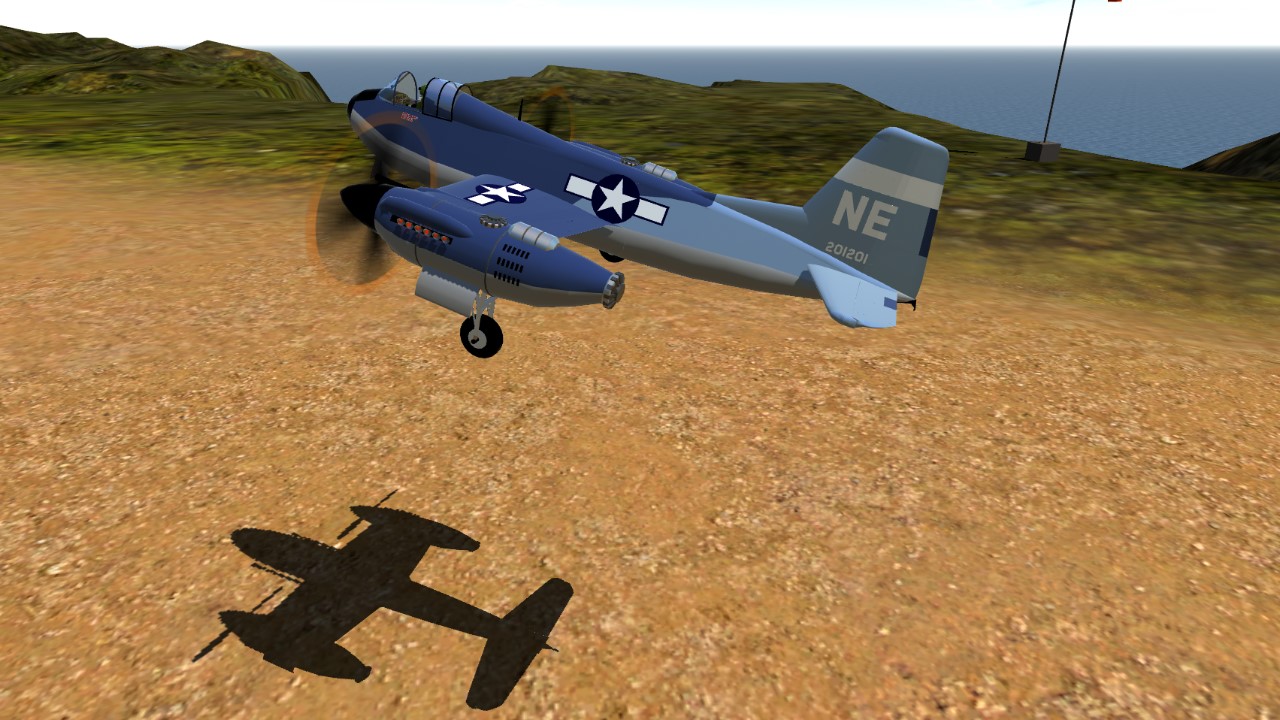
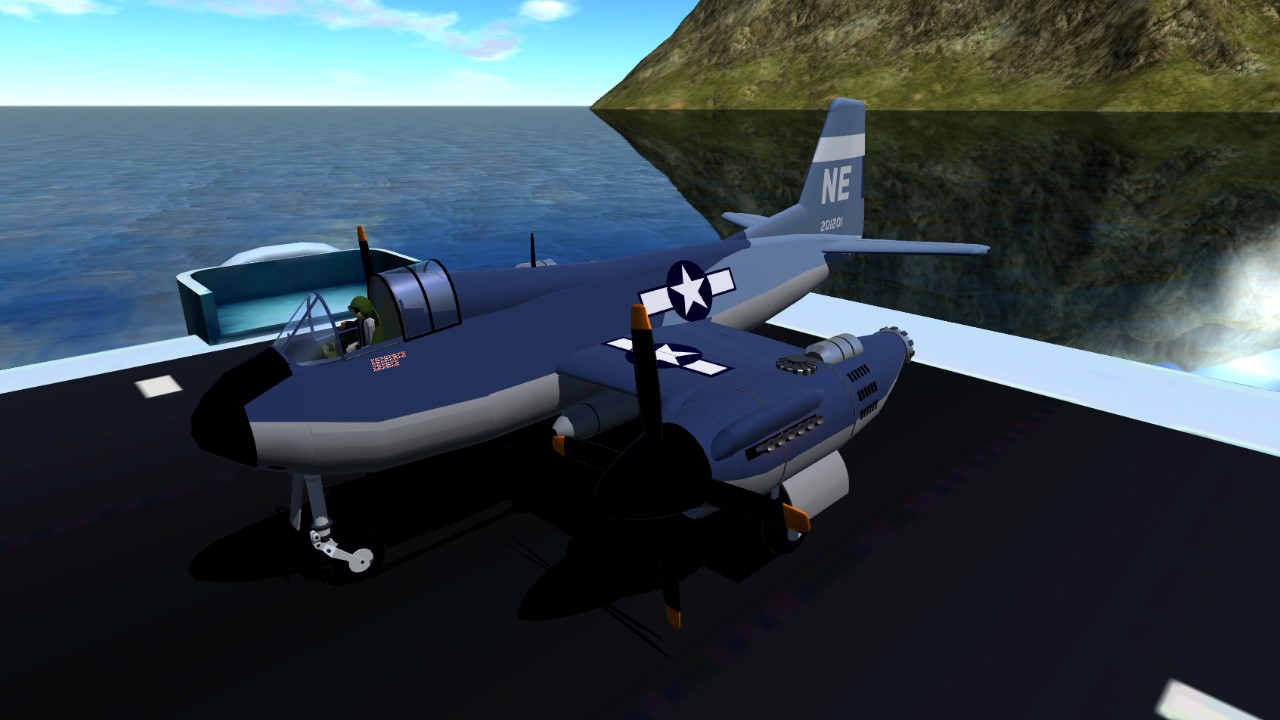
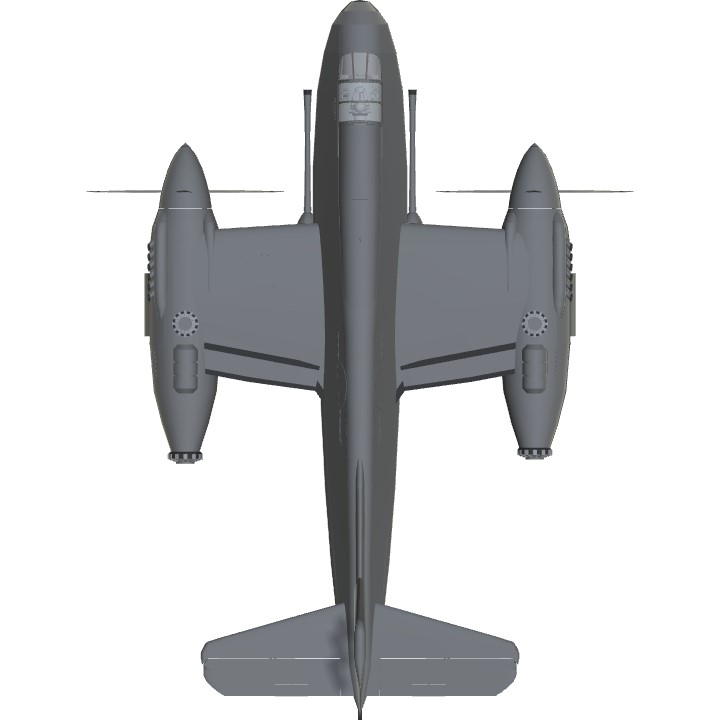
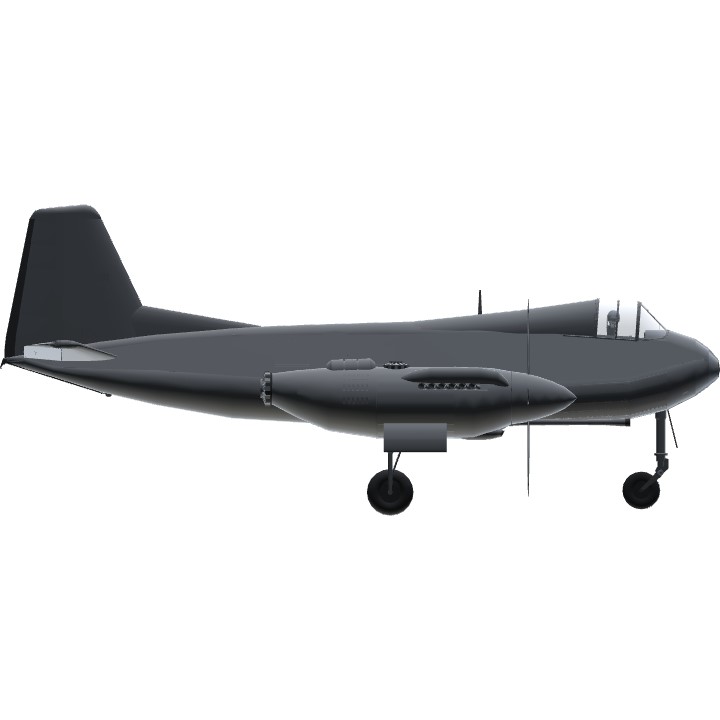
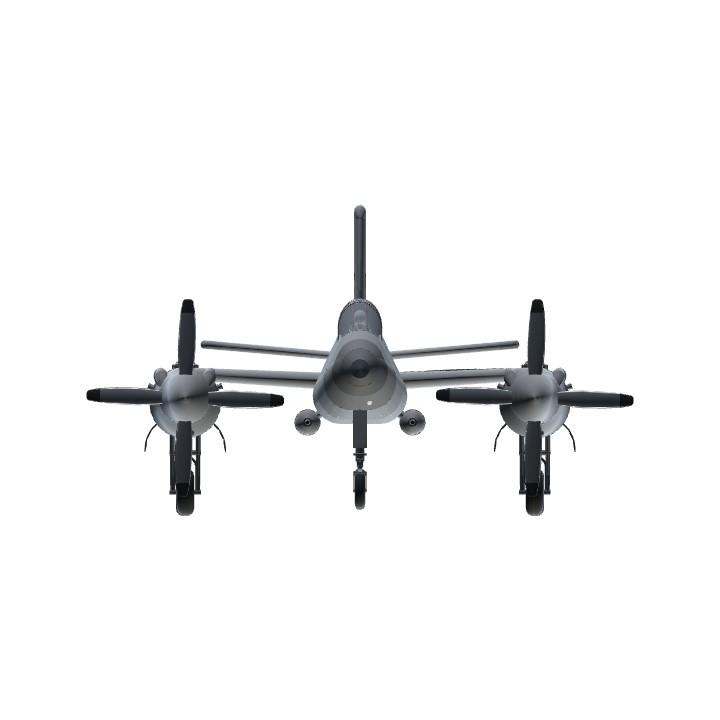
@Franticmatty Thanks, glad you liked it, it had been a while since i have built anything along these lines =)
Love this thing, had it bookmarked for a while, only just used it. Nice job! :D
@TitanIncorporated In do have some stock parts which helps but i also have a backlog of half finished aircraft that im working through list of most of them here
Ok I understand it was just a thought why not build a afterburning prop fan aircraft with winglets can that happen @RamboJutter
Most times i forget to upvote and just write a nice comment@RamboJutter
Ahha @RamboJutter
@ThomasRoderick @MoldyBread thanks 😊 glad you like my style, thanks for the upvotes, they are getting hard to come by.
@Raptor787 as thomasroderick said, I don't tend to build replicas, I like to experiment with fictional craft.
Gotta say man, ur one of the best builders out there
@Raptor787 He don't make historical planes, only things that shouldn't fly whatsoever.
Can you make the thunderscreech
First!